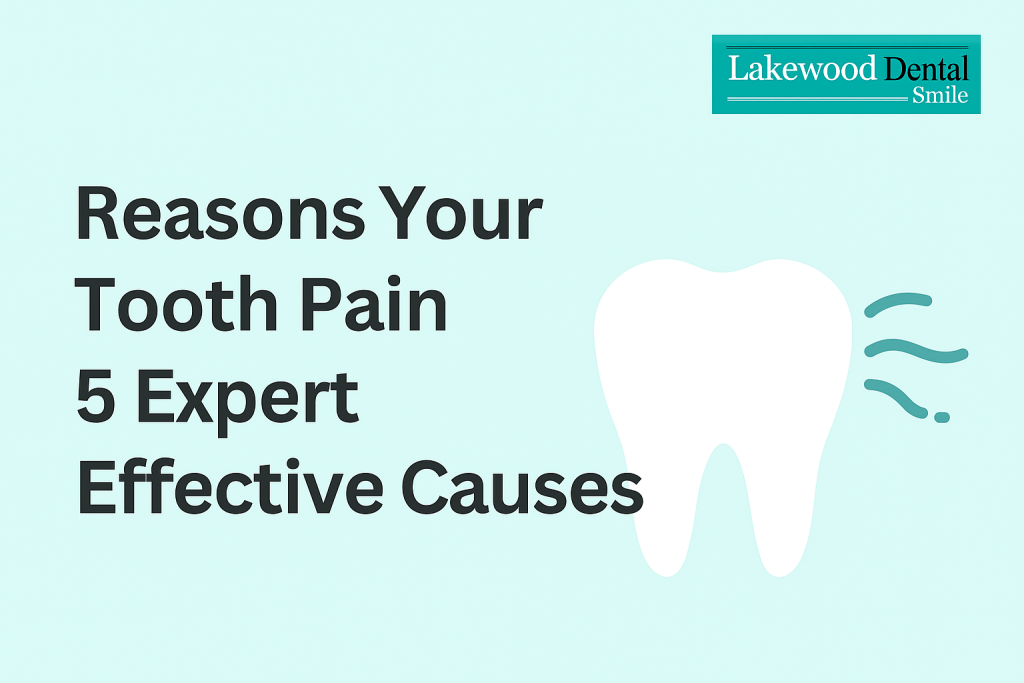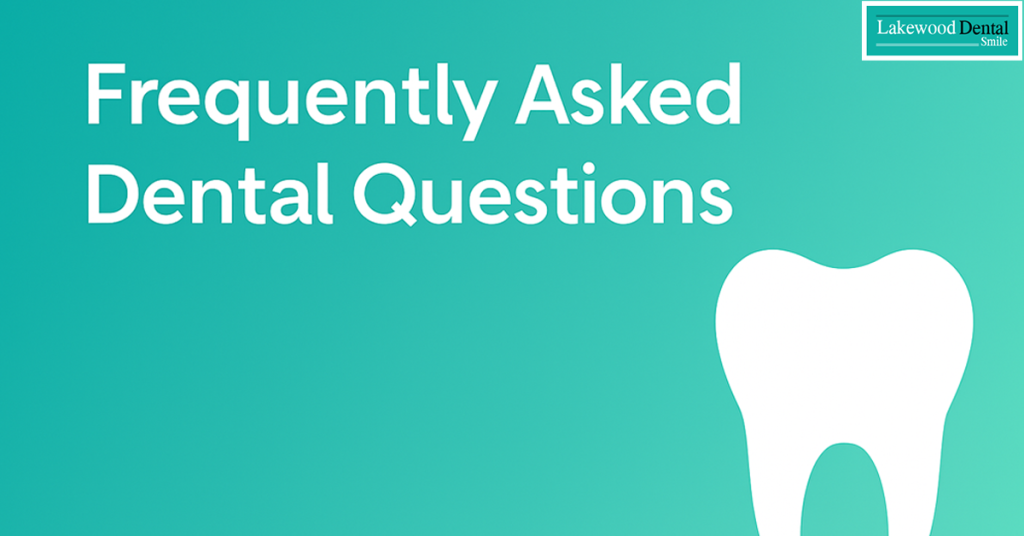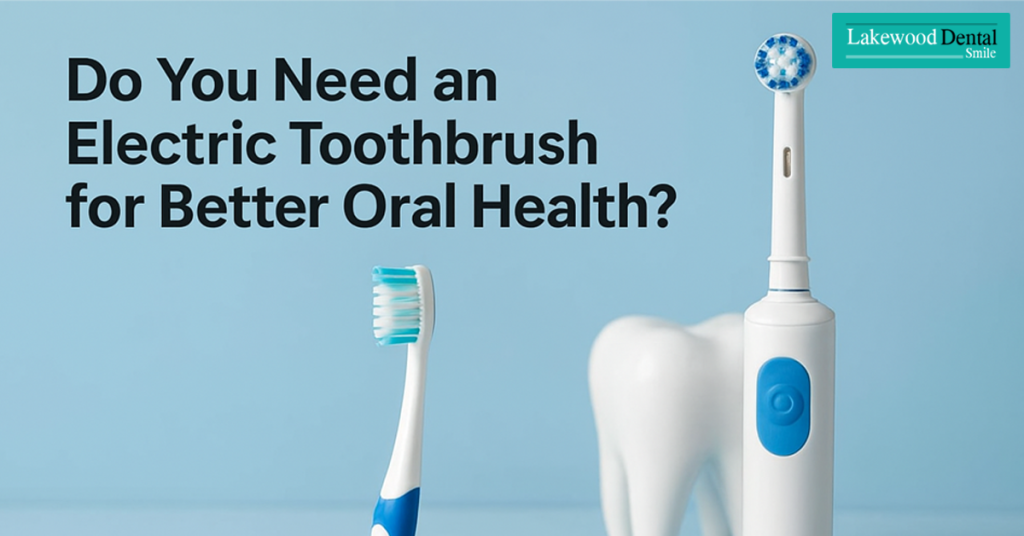Understanding the reasons your tooth pain occurs can help you know when discomfort might resolve on its own and when it requires dental attention. Tooth pain can range from sensitivity to severe throbbing that affects sleep, eating, and daily routines. While occasional irritation may come from temporary factors, persistent or intense pain is often a sign of an underlying issue. Learning the reasons your tooth pain develops allows patients to take action sooner, reduce the risk of complications, and avoid emergency treatments. Consulting a dentist is the best way to diagnose the source and protect long-term oral health.

Why does tooth pain happen?
There are several reasons your tooth pain may begin, and each one affects the nerve differently. The pulp inside the tooth contains blood vessels and nerves, and when it becomes irritated or exposed, pain can occur. Cavities, cracked enamel, gum problems, infection, and bite pressure are among the most common contributors. Identifying the reasons your tooth pain matters because different causes require different treatments. Some cases can be managed quickly, while others need urgent care to prevent damage or infection from spreading.
Cavities
One of the most common reasons your tooth pain develops is a cavity. Cavities form when bacteria break down enamel, creating small holes in the tooth structure. Early decay may only cause brief sensitivity, but deeper cavities can reach the nerve and trigger sharp or lingering pain. Treating cavities early allows the tooth to be restored with a simple filling. When treatment is delayed, more extensive procedures such as root canal therapy or extraction may become necessary to stop pain and infection.
Damaged or lost filling
A missing or broken filling is another of the frequent reasons your tooth pain may arise. When a filling becomes loose or falls out, the unprotected area can become sensitive to temperature and pressure. Chewing may feel uncomfortable, and food can become trapped in the space. A dentist can replace the filling or provide additional treatment if the tooth has weakened over time. Early evaluation prevents the problem from getting worse or requiring more complex care.
Teeth grinding
Teeth grinding, also known as bruxism, is among the reasons your tooth pain may occur without obvious signs during the day. Grinding places excessive pressure on teeth, leading to soreness, jaw tension, and worn enamel. Many people notice headaches or stiffness when waking up. A dentist may recommend a custom night guard to protect the teeth and reduce strain on the jaw muscles and joints. Addressing grinding early helps prevent cracks, sensitivity, and long-term wear.
Swollen tooth or infection
Infection at the root of the tooth is one of the more serious reasons your tooth pain can happen. When bacteria reach the inner pulp, swelling and intense throbbing may develop. Additional symptoms may include facial swelling, fever, or a persistent bad taste. Antibiotics may provide temporary relief, but root canal treatment is often required to remove infection and save the tooth. Delaying care increases the risk of the infection spreading beyond the tooth and becoming a dental emergency.
Wisdom teeth growth
The emergence of wisdom teeth is another of the reasons your tooth pain may appear, especially in late teens and early adulthood. When these teeth do not have enough space to grow, they can cause swelling, gum irritation, jaw stiffness, and pressure on nearby teeth. A dental examination and imaging help determine whether removal is needed to prevent long-term problems such as infection or crowding.
Sensitivity to temperature
Temperature-related discomfort is among the common reasons your tooth pain occurs. Enamel erosion, gum recession, or small cracks may expose the dentin layer beneath the surface. This allows heat, cold, or sweet foods to reach the nerve and trigger sensitivity. Desensitizing toothpaste, fluoride treatments, and gentle brushing with a soft toothbrush often reduce symptoms. Persistent or worsening sensitivity should be evaluated to rule out decay, fracture, or gum disease.
Sensitivity after whitening
Temporary sensitivity after professional whitening is another of the short-term reasons your tooth pain may develop. Most discomfort fades within a day, but if pain continues or becomes intense, a dentist may recommend adjusting whitening frequency or using protective products to strengthen enamel.
Final thoughts
Knowing the reasons your tooth pain occurs helps you recognize when home care is appropriate and when to seek professional treatment. Tooth discomfort should never be ignored, particularly when swelling, persistent pain, or difficulty chewing is present. Many patients feel more confident when supported by a dental team experienced in identifying the source of pain and providing timely care. Practices like Lakewood Dental Smile assist individuals in diagnosing the cause of tooth pain and recommending the most suitable treatment for long-lasting relief and improved comfort.




